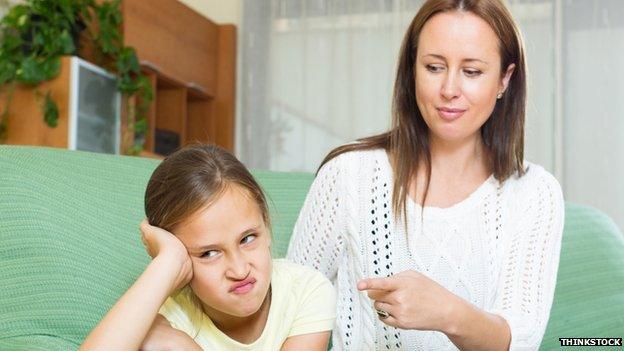Controlling parents 'harm future mental health'
- Published

Controlling parents may prevent children from developing a sense of themselves
Adults who were psychologically controlled as children by their parents are more likely to have poor mental health, research suggests.
University College London researchers likened the impact to that of the death of a close friend or relative.
They said the most important factor in developing a sense of mental wellbeing was parents' care and responsiveness.
But controlling parents restricted their children's autonomy and stopped them developing a strong self-identity.
They prevented them from learning from their own mistakes or conflicts.
And this had a strong and persistent link with poor mental health throughout their life.
Relationships
Children with caring parents were more securely attached and therefore better able to manage future relationships, the researchers said.
Mothers' and fathers' care were equally important predictors of mental health through to middle age.
But paternal care had a greater association with wellbeing in later life.
In the study, 2,000 people born in 1946 in England, Scotland and Wales were questioned in their adolescence, their 30s and 40s, and between the ages of 60 and 64 about their mental health.
They were also asked to reflect on the quality of their relationships with their parents in the first 16 years of their life.
Anxiety
Lead author Dr Mai Stafford said: "All parents are to a certain extent caring and to a certain extent controlling.
"It's whether we feel our parents invaded our privacy or we feel we were well looked after.
"The more caring and the more understanding we are, the more we listen to our children and speak to them in a warm and friendly way."
Dr Claire Hill, clinical psychologist specialising in parenting and child anxiety at the University of Reading, said: "In the field of childhood anxiety disorders, there is a real lack of studies that include both.
"In some areas paternal care was more strongly associated with wellbeing than maternal care - the role of fathers should not be ignored when assessing psychological problems in children.
"Crucially the study suggests that parenting interventions should be aimed at both parents, and not just the primary caregiver, who is typically the mother. But while this is an important study, caveats need to be applied to the results.